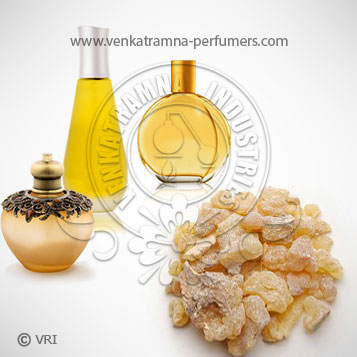
| Botanical Name | Boswellia serreta |
| Common Name | Olibanum and Gum |
| Country of Origin | India |
| Solubility | Soluble in alcohol and oils. Insoluble in water |
| Specific Gravity | 0.850 - 0.890 @ 20°C |
| Optical Rotation | (+35) - (-15) |
| Refrective Index | 1.465 - 1.482 @ 20°C |
| PlantPart | Resin |
| Bland With | It blends well with various oils, such as benzoin, sandalwood, lavender, myrrh, pine, orange, bergamot and lemon. |
| CAS No | 8008-79-5 |
| Flash Point | 121°F |
| Extraction Method | CO2 Extraction |
This essential oil is pale yellow-green in color and has a woody, spicy, haunting smell, a little bit camphoric, yet highly pleasant. It is extracted from resin of the Boswellia carteri tree, of the Burseraceae family using CO2 extraction method.
Incense has been traded for 5,000 years, was widely used in ancient Egypt, and one of the ingredients of the holy oil in the Talmud. Frankincense was brought back to Europe by Frankish Crusaders (Frank-incense). Its resin is known as olibanum, derived from the Arabic al-luban or 'that which results from milking', referring to the milky sap tapped from the Boswellia tree from which the resinous tears are obtained. Frankincense is considered the holy anointing oil in the Middle East, where it has been used in religious ceremonies for thousands of years. More recently, it has been used in European and American hospitals and is the subject of substantial research
Color : Pale yellow Viscous liquid with Balsamic, typical olibanum odor,
Aroma : Earthy scent or ground aroma
Its main components are a-pinene, actanol, linalool, octyl acetate, bornyl acetate, incensole and incensyl acetate.
Owing to its spicy, haunting yet pleasant smell, it widely used in perfumery. It also has medicinal properties and finds application in aromatherapy.